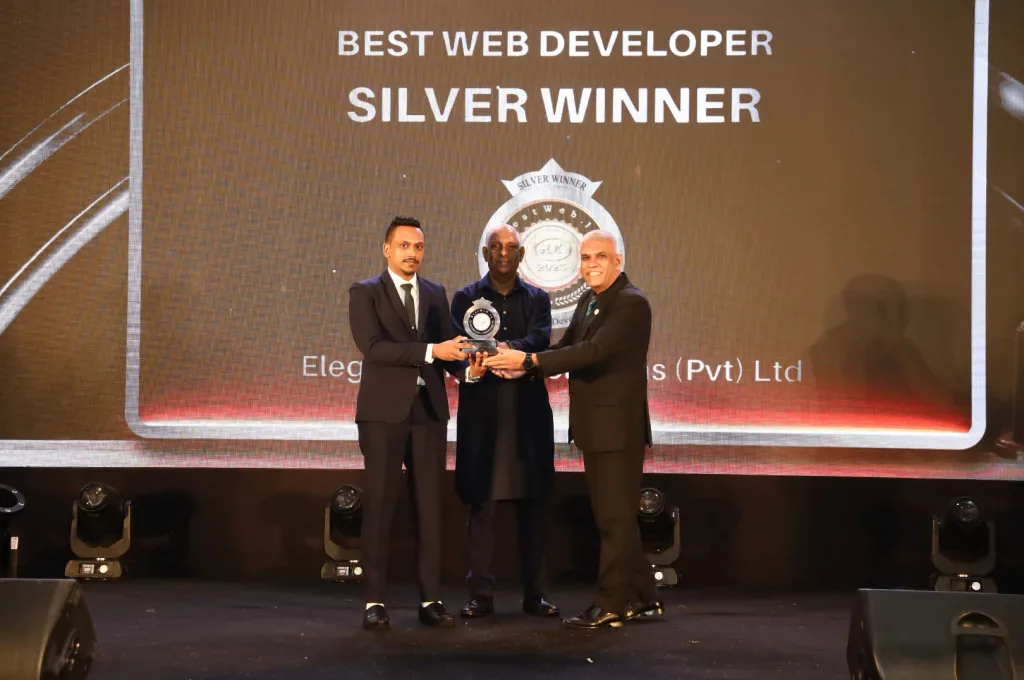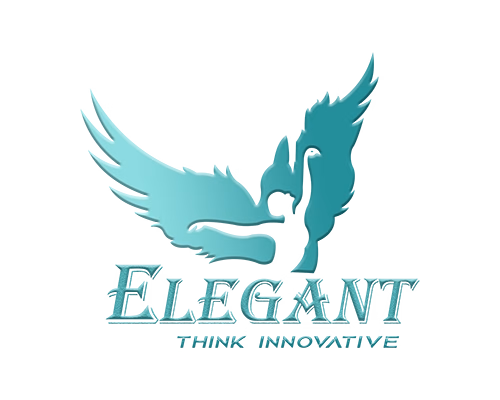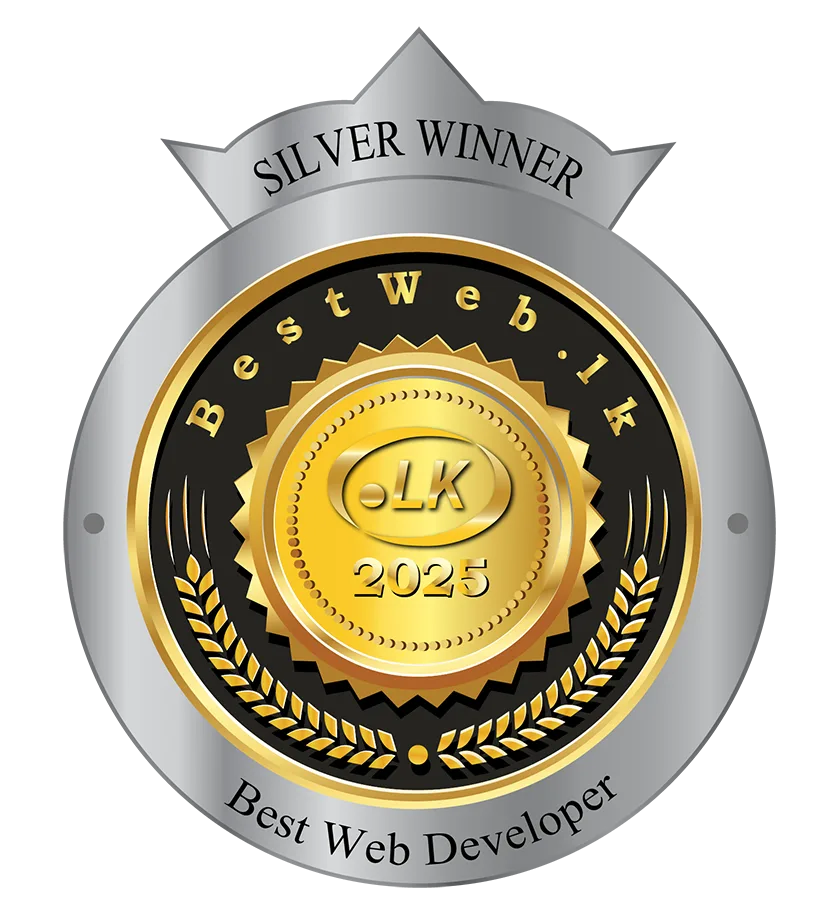Elegant Shines at BestWeb.LK 2025 with 4 Prestigious Awards
Elegant Shines at BestWeb.LK 2025 with 4 Prestigious Awards

🥈 Silver Award – Best Web Developer
We are thrilled to have received the Silver Award for Best Web Developer, a testament to our consistent performance, design leadership, and client satisfaction across multiple sectors. This recognition places Elegant among the top-tier web development companies in Sri Lanka.
🥇 Gold Award – Best Micro Enterprises Website
Project: www.elegantphotography.lk
Crafted for a boutique photography brand, this site blends minimalist elegance with immersive visual storytelling. The award celebrates our ability to empower micro enterprises with high-impact digital platforms that elevate their brand identity and customer engagement.
🥇 Gold Award – Best Fashion & Lifestyle Website
Project: www.haidi.lk
Haidi.lk showcases a vibrant fusion of fashion, culture, and lifestyle. This award-winning site features dynamic layouts, seamless e-commerce integration, and a bold aesthetic that reflects the brand’s personality. It’s a benchmark for how design can drive desire and conversion.
🥉 Bronze Award – Best Agriculture Website
Project: www.anaawei.lk
Anaawei.lk is a digital gateway to sustainable agriculture. With earthy textures, intuitive navigation, and informative content, the site connects farmers, consumers, and innovators. This award highlights our commitment to supporting Sri Lanka’s agricultural sector through thoughtful design.
Why These Awards Matter
Receiving multiple accolades at BestWeb.LK 2025 validates our core mission: to create websites that are not only visually stunning but also strategically effective. These awards reflect:
- Cross-industry expertise: From fashion to farming, we adapt and innovate.
- Client-centric design: Every site is tailored to the brand’s voice and goals.
- Technical excellence: Fast, secure, and responsive builds that perform.



FEATURED POSTS
-
 Elegant Shines at BestWeb.LK 2025 with 4 Prestigious Awards
Elegant Shines at BestWeb.LK 2025 with 4 Prestigious Awards -
 Why Every Bakery Needs a Professional Website
Why Every Bakery Needs a Professional Website -
 Why Yoga Instructors or Yoga Institutes Should Have a Professional Website
Why Yoga Instructors or Yoga Institutes Should Have a Professional Website -
 How a Mobile Friendly Website Can Boost Your Sales
How a Mobile Friendly Website Can Boost Your Sales -
 ELEGANT Launches New Website for Best Care Liverpool
ELEGANT Launches New Website for Best Care Liverpool -
 ELEGANT Launches New Website for David’s Mortgage Advisory Ltd with a Fresh, Professional Look
ELEGANT Launches New Website for David’s Mortgage Advisory Ltd with a Fresh, Professional Look
Elegant Shines at BestWeb.LK 2025 with 4 Prestigious Awards Read More »








